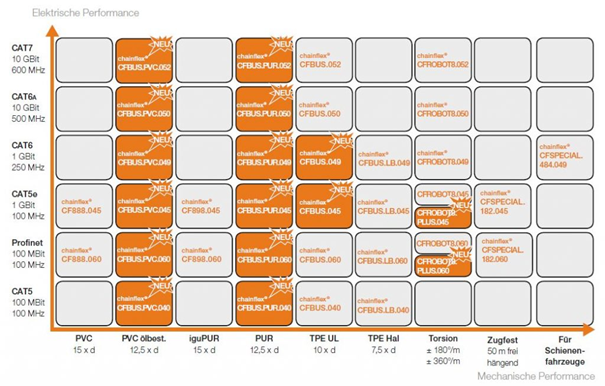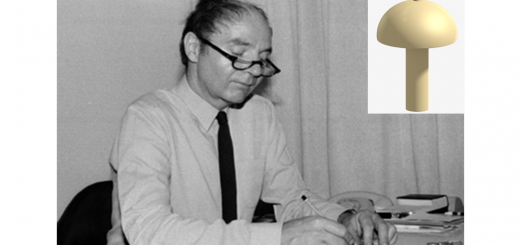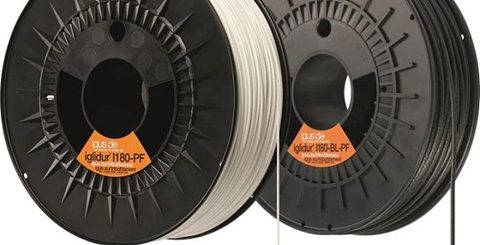Which Ethernet Cable is the Right One for Me?
By Andreas Muckes
Choosing the right Ethernet cable might be more important than you think. If the right cable has not been selected, data will not be transferred correctly, which in turn could lead to a machine malfunction. In this blog post, I will describe different kinds of Ethernet cables so that you can choose the best one for your application.
Industrial Ethernet
Industrial Ethernet is the next step for the future’s “digitized factories.” Studies show that while the world of fieldbus is stagnating, the number of Ethernet nodes is increasing – with double-digit growth rates.
These systems offer seamless data exchange at all production facility levels, from the highest control level to the manufacturing level.

Ethernet cable categories for industrial applications
There are basically eight categories of Ethernet cables on the market. However, for industrial applications, we will focus on the last three and set aside CAT1 (0.4 MHz): telephone, CAT2 (4 MHz): ISDN or terminal systems, CAT3 (16 MHz): telephone/ISDN 10BASE-T or 100BASE-T4, and CAT4 (20 MHz): token ring.
Below, we will describe the industrial cable categories currently in use and their recommended applications:
CAT5:
Today, CAT5 is the most frequently used type of Ethernet cable. Many users don’t recognize this fact because these cables are often listed as “Ethernet” or “Profinet”, as opposed to “CAT5.”
CAT5e:
CAT5e is the typical class for “GigE”, as it is often termed. This class is referred to in discussions of industrial Ethernet, and the standard is used in CC LIN IE, for example.
CAT6, CAT6a, and CAT7:
These are considered Ethernet cables of the future, because of their higher data quantities and frequencies. These qualities often allow applications to function well, however, the betterment of electrical performance is often not required.
igus® makes cables for e-chain cable carriers. Our cables and cable carriers have been tested together, with recorded service lives of many millions of cycles in conditions of high speed and acceleration.
The product range of chainflex encompasses PVC, PUR and TPE cables. All chainflex cables have the appropriate certifications and conformities, such as UL, CSA, NFPA-79-2012, EAC, CTP, EtherCAT, CC-Link IE Field, and Profinet.

How do I find the ideal cable for my application?
The following table will help you find the ideal cable for your application. When looking for the best price-performance ratio, choose mechanical performance on the X-axis and electrical performance on the Y-axis.

Harnessed, tested cables are, of course, also available from the catalogue with no minimum order quantity and at lengths cut individually down to the centimetre.
Browse our readycable shop for the Ethernet cable that is right for you, or use our readycable product finder.



